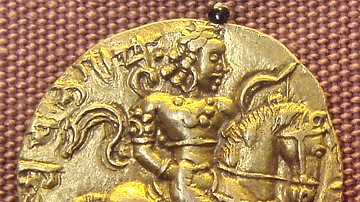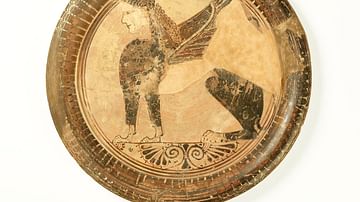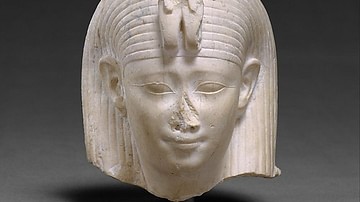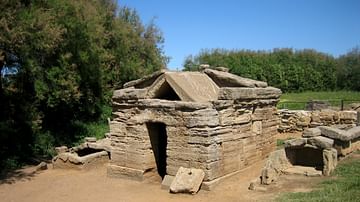Search
Did you mean: Xois?
Search Results

Definition
Leprechaun
Leprechauns (also leprecauns or lepracauns) are figures in Irish folklore who guard hidden treasure. Regarded as small and incredibly agile male fairies or goblins, they most often guard a pot of gold. Leprechauns live solitary lives and...

Definition
Chandragupta II
Chandragupta II (c. 375 CE - 413/14 CE) was the next great Gupta emperor after his father Samudragupta (335/350 - 370/380 CE). He proved to be an able ruler and conqueror with many achievements to his credit. He came to be known by his title...

Definition
Melqart
Melqart (also Melkarth or Melicarthus) was an important Phoenician god and patron deity of the city of Tyre. Associated with the monarchy, sea, colonization, and commercial enterprise, both at home and abroad the god is a significant, if...

Definition
Aethelstan
Aethelstan was the first King of England, ruling from 927 to 939. The son of Edward the Elder (reign 899-924) and grandson of Alfred the Great (reign 871-899), he inherited the southern-based Kingdom of the Anglo-Saxons in 924 before capturing...

Definition
Caesarea Maritima
Caesarea Maritima was a city built over 2,000 years ago (c. 22-10 BCE) on the coast of the Eastern Mediterranean. With Roman engineering and largesse, Herod the Great (r. 37-4 BCE) accomplished this feat by constructing a whole metropolis...

Definition
Naukratis
Naukratis (also spelled Naucratis, and known as Nokraji to the ancient Egyptians) was a city in Lower Egypt, located in the Canopic (or western) branch of the Nile delta, which became a powerful trading port between the Egyptians and the...

Definition
Arsinoe II Philadelphus
Arsinoe II (l. c. 318/311 - c. 270/268 BCE), daughter of Ptolemy I became one of the most enduring figures of the Lagid or Ptolemaic Dynasty and left an undeniable mark in the historical evidence. She was married three times; first to Alexander...

Definition
Alexander I of Scotland
Alexander I of Scotland reigned from 1107 to 1124 CE. Alexander continued the reorganisation of the Scottish Church, taking the Roman Catholic Church organisation as a model, and he famously founded the priory at Scone, site of the acclamation...

Definition
Aytap
Aytap is the modern name for the ancient city of Iotapa (sometimes given as Iotape and Iotape Philadelphos) in Cilicia. The city's ruins are located in southern Turkey near modern day Alanya (ancient Coracesium). The city was founded in 52...

Definition
Populonia
Populonia (Etruscan name: Pupluna or Fufluna), located on the western coast of Italy, was an important Etruscan town which flourished between the 7th and 2nd century BCE. Rich in metal deposits and so noted for its production of pig iron...